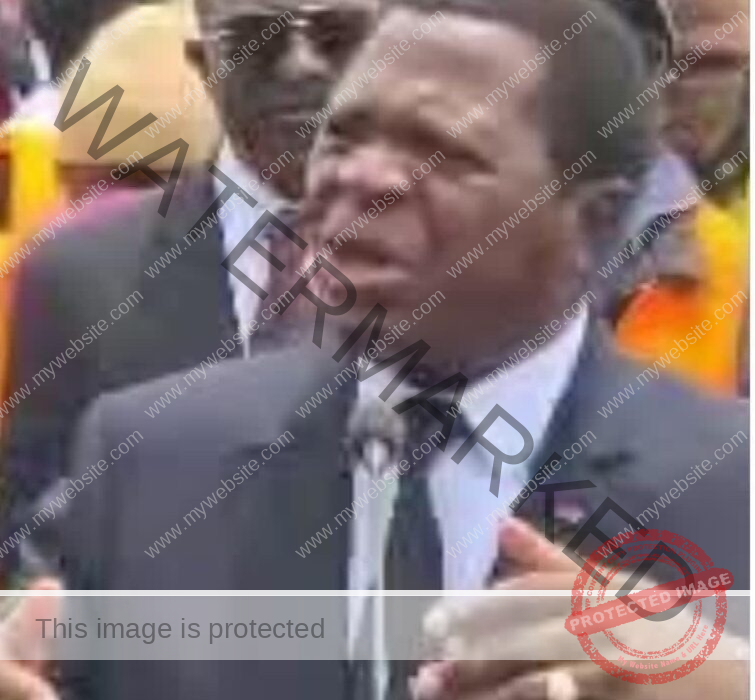While the Biya loyalists cling to the illusion of total control through ELECAM and the Constitutional Council—both packed with regime loyalists—they understand that optics matter. A premature declaration of victory by Tchiroma could ignite spontaneous uprisings, especially in Garoua, Ngaoundéré, and Maroua, shattering the regime’s carefully scripted electoral theatre.
By Ndasi Tata – See’am Talk’am | October 10, 2025
As Cameroon heads into the final 24 hours before the highly contested October 12 presidential proclamation, a wave of palpable fear and confusion is sweeping through the ranks of the ruling Cameroon People’s Democratic Movement (CPDM). At the center of this storm is Issa Tchiroma Bakary, the charismatic northern politician whose unexpected surge has unsettled the power brokers of Yaoundé.
Tchiroma’s Meteoric Rise Alarms the Old Guard
Once considered a marginal figure operating on the regime’s fringes, Tchiroma has in recent weeks become a rallying point for disillusioned Cameroonians, especially in the North. His sharp rhetoric, populist messaging, and the perception that he represents a break from Biya’s aging, corrupt inner circle have made him the most popular candidate in the 2025 race.
For the first time in decades, CPDM insiders face the frightening possibility of a candidate outside the Biya family orbit gaining mass legitimacy. According to multiple sources in Yaoundé, panic has spread among ministers, governors, and party barons. Many now worry that a Tchiroma victory—real or perceived—could cost them their political lifelines, or worse, expose them to legal and financial accountability after decades of impunity.
Atanga Nji’s Threats: A Sign of Weakness or Confidence?
In a dramatic twist, Minister of Territorial Administration Paul Atanga Nji issued a direct warning to Tchiroma: declaring victory before the Constitutional Council’s official proclamation would lead to his immediate arrest.
This extraordinary threat, reportedly made behind closed doors and later leaked to the press, reveals the regime’s nervousness. If Biya’s camp were genuinely confident of victory, why issue threats? Why prepare security contingencies for a northern backlash?
The answer may lie in the deep mistrust between rival factions within the CPDM. While the Biya loyalists cling to the illusion of total control through ELECAM and the Constitutional Council—both packed with regime loyalists—they understand that optics matter. A premature declaration of victory by Tchiroma could ignite spontaneous uprisings, especially in Garoua, Ngaoundéré, and Maroua, shattering the regime’s carefully scripted electoral theatre.
Legal Facade vs. Political Reality
Cameroonians are fully aware that ELECAM and the Constitutional Council are mere appendages of the CPDM. These institutions lack both independence and credibility, functioning as rubber stamps for decisions already made in Etoudi. But this year’s atmosphere is different. The regime’s threats betray insecurity, not strength. The population has grown increasingly restless, and even CPDM insiders admit privately that the Biya system is crumbling under its own weight.
Tchiroma’s rising profile has also exposed deep cracks within the northern elite, many of whom now see him as a vehicle for post-Biya realignment. Arresting him could therefore trigger a serious backlash—one the regime may not be able to contain without severe political costs.
A Regime on Edge
The last 48 hours before the proclamation are shaping up to be the most tense since 1992, when the regime manipulated results to deny John Fru Ndi victory. This time, however, the stakes are even higher. Biya is 92, succession battles are raging, and the northern bloc is restless.
Atanga Nji’s threats are not just aimed at Tchiroma; they are a warning shot to any contender who might challenge the scripted outcome. But history has shown that when regimes rely more on threats than legitimacy, their grip is already slipping.
Ndasi Tata – See’am Talk’am

